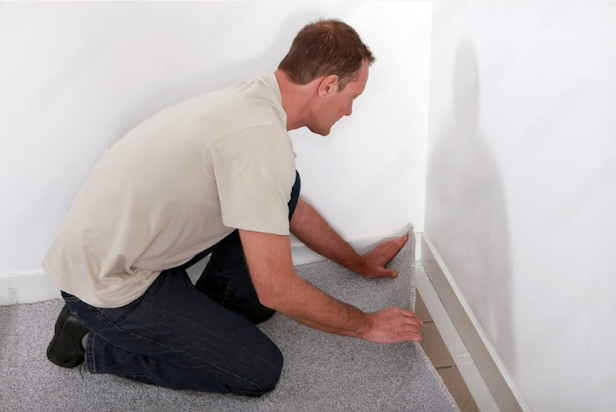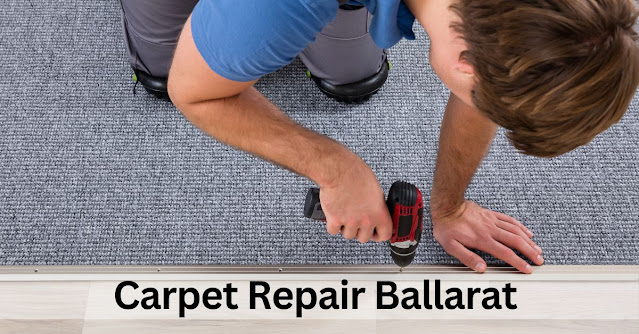Is The Landlord Responsible for Carpet Repair?
- Get link
- X
- Other Apps
Welcome to our blog post on the responsibilities of landlords when it comes to carpet repair! Whether you're a tenant dealing with worn-out carpets or a landlord facing questions about your obligations, this article is here to shed some light on the subject. Understanding the rights and responsibilities of both parties is crucial in maintaining a harmonious landlord-tenant relationship. So, let's dive into the world of carpet repair Frankston, and explore when landlords are responsible for ensuring those underfoot fibers stay in top shape. And if you happen to be in Frankston looking for reliable carpet repair services, we've got you covered too!
Understanding Landlord-Tenant Laws
Understanding Landlord-Tenant Laws is essential for both landlords and tenants to navigate their rights and responsibilities effectively. These laws vary from state to state, so it's crucial to familiarize yourself with the specific regulations in your area.
In general, these laws cover various aspects of the landlord-tenant relationship, including lease agreements, security deposits, eviction procedures, and maintenance responsibilities. They are put in place to protect the interests of both parties involved.
Landlords have a legal obligation to provide safe and habitable living conditions for their tenants. This includes ensuring that all essential amenities are functioning properly and maintaining the property in good repair. However, it's important to note that minor wear and tear from regular use is typically considered normal tenant responsibility.
On the other hand, tenants have certain rights as well. These may include the right to privacy, and proper notice before entry by the landlord or property manager unless in case of an emergency or necessary repairs.
Being aware of these laws can help prevent conflicts between landlords and tenants. It also ensures that everyone understands their respective roles when it comes to carpet repair or any other maintenance issue within a rental property.
Remember that consulting local resources such as housing authorities or seeking legal advice can provide more accurate information regarding specific landlord-tenant laws in your area
Rights and Responsibilities of Landlords
As a landlord, it is essential to understand your rights and responsibilities in relation to carpet repairs. While the specific laws may vary depending on your jurisdiction, there are some general principles that apply in most cases.
Landlords have the right to provide a safe and habitable living environment for their tenants. This includes ensuring that the carpets are clean, well-maintained, and free from any hazards or defects that could pose a risk to tenants' health or safety.
Landlords also have the responsibility to address any issues with the carpets promptly. If a tenant reports damage or wear and tear that requires repair, it is generally the responsibility of the landlord to arrange for professional carpet repair services.
However, it's important to note that not all types of damage fall under the landlord's responsibility. For example, if a tenant causes intentional damage or neglects proper care of the carpet resulting in excessive wear and tear beyond normal use, they may be held responsible for covering the cost of repairs.
In situations where there is uncertainty about who should bear responsibility for carpet repairs, it's advisable for both parties (landlord and tenant) to refer back to their lease agreement. The lease agreement should clearly outline each party's rights and responsibilities regarding maintenance issues such as carpet repair.
By understanding these rights and responsibilities upfront, landlords can ensure they fulfill their obligations while maintaining positive relationships with their tenants. It is always recommended to seek legal advice specific to your local area when dealing with complex issues related to rental properties.
Rights and Responsibilities of Tenants
As a tenant, it's important to understand your rights and responsibilities when it comes to carpet repair. While the specific laws may vary depending on your location, there are some general guidelines that apply in most cases.
Tenants have the right to live in a safe and habitable environment. This means that if the carpet becomes damaged or poses a safety hazard, it is typically the landlord's responsibility to address the issue. However, tenants also have a responsibility to report any damage or issues promptly so that repairs can be made in a timely manner.
Additionally, tenants are generally responsible for keeping the premises clean and free from excessive damage beyond normal wear and tear. This includes taking proper care of the carpet by vacuuming regularly and promptly cleaning up spills or stains.
It's worth noting that if you caused significant damage to the carpet through negligence or intentional actions, you may be held responsible for repairing or replacing it yourself. However, minor wear and tear should not typically fall under your responsibility as a tenant.
While landlords generally bear the responsibility for carpet repair due to normal wear and tear or hazards that arise during the tenancy, tenants must also fulfill their duty of reporting damages promptly and maintaining cleanliness within their rented space. Understanding these rights and responsibilities is crucial for both parties involved in ensuring a fair tenancy agreement regarding carpet repairs.
When is a Landlord Responsible for Carpet Repair?
The responsibility for carpet repair in a rental property can often be a source of confusion and conflict between landlords and tenants. Understanding when the landlord is responsible for carpet repair is essential for both parties.
In most cases, landlords are responsible for repairing or replacing carpets that have been damaged due to normal wear and tear. This includes damage caused by regular use, such as fading, fraying, or worn-out areas. Landlords are also responsible if the carpet was already in poor condition at the time of move-in.
However, if the tenant has caused significant damage to the carpet beyond normal wear and tear, such as stains, burns, or large tears, it may be their responsibility to cover the cost of repairs or replacement.
It's important to note that each state has its own specific laws regarding landlord-tenant responsibilities. Some states may require landlords to provide a habitable living environment with properly maintained carpets throughout the tenancy.
To avoid conflicts and ensure clarity regarding carpet repair responsibilities, it's recommended for both landlords and tenants to include specific clauses in their rental agreements addressing this issue.
Conclusion
Understanding the rights and responsibilities of both landlords and tenants is crucial when it comes to carpet repair. While landlords are generally responsible for maintaining the rental property in a habitable condition, including repairing or replacing carpets that are damaged due to normal wear and tear, there may be instances where tenants bear the responsibility.
It is important for both parties to communicate openly and clearly regarding any carpet issues. Landlords should conduct regular inspections of their properties, addressing any carpet damage promptly. Tenants should report any damages or issues with the carpets as soon as they arise.
If you find yourself facing a carpet repair situation as either a landlord or tenant in Frankston, seeking legal advice from professionals familiar with local laws can provide clarity on your specific circumstances.
Remember that each case is unique, and it's essential to consult relevant tenancy laws specific to your region. By understanding your rights and obligations as either a landlord or tenant, you can navigate potential disputes regarding carpet repairs more effectively.
So if you're living in Frankston and need assistance with carpet repair within your rented property, consider reaching out to experienced professionals who specialize in this service area. They will have the expertise needed to assess the damage accurately and recommend appropriate solutions.
By staying informed about your rights under tenancy laws and maintaining open lines of communication between landlords and tenants, both parties can work together towards resolving any carpet repair issues amicably while ensuring a safe living environment for all involved.
- Get link
- X
- Other Apps


.jpg)
Comments
Post a Comment